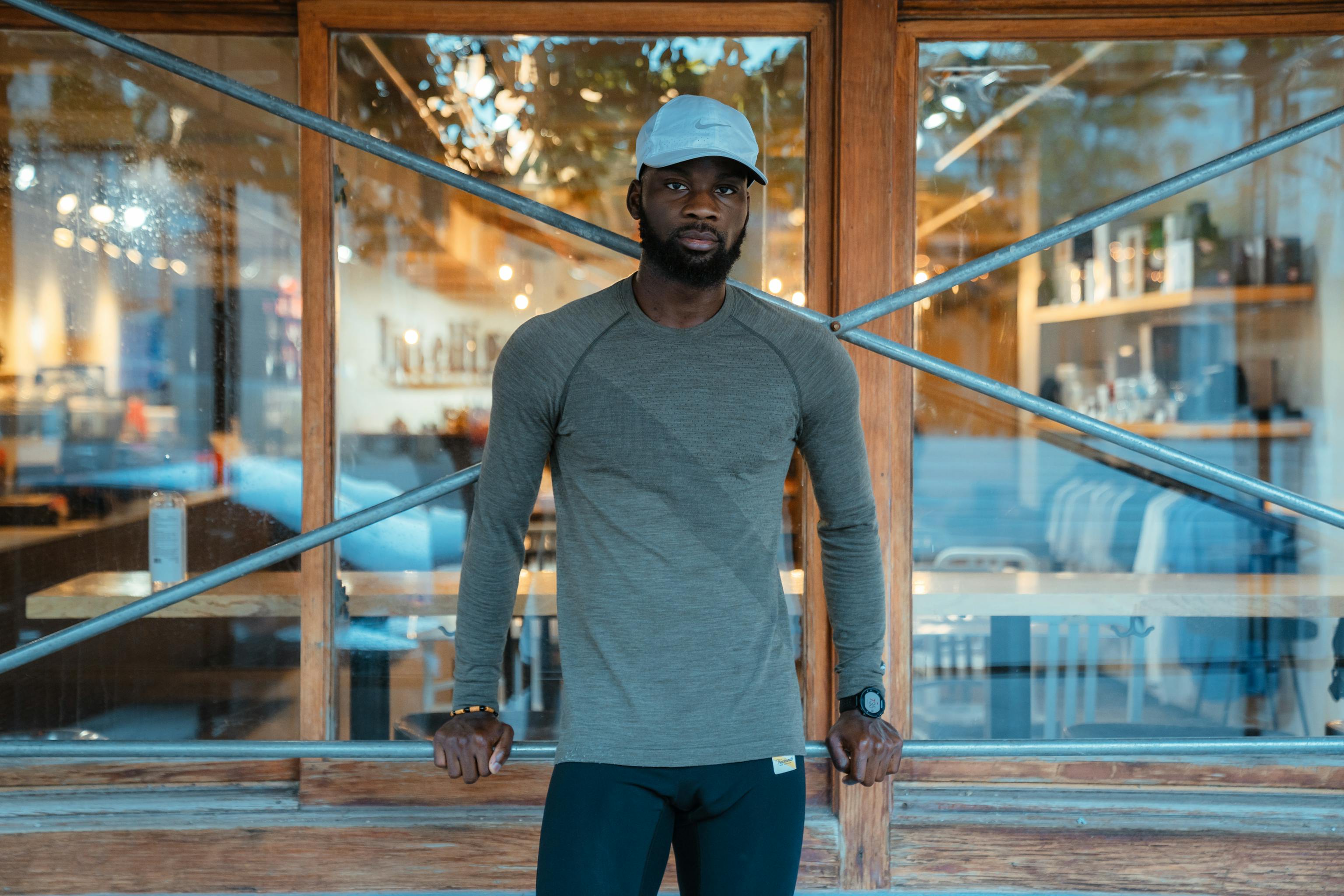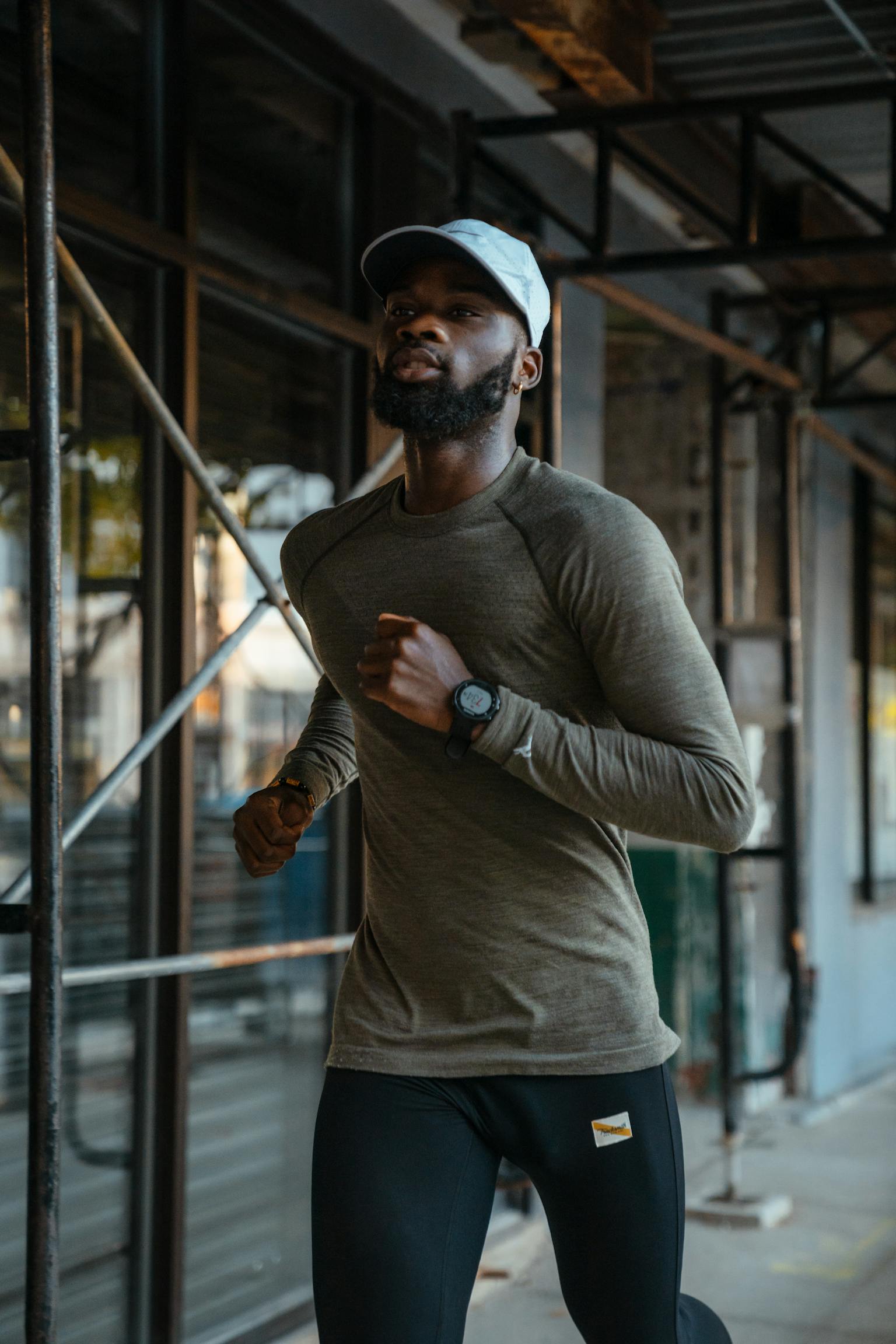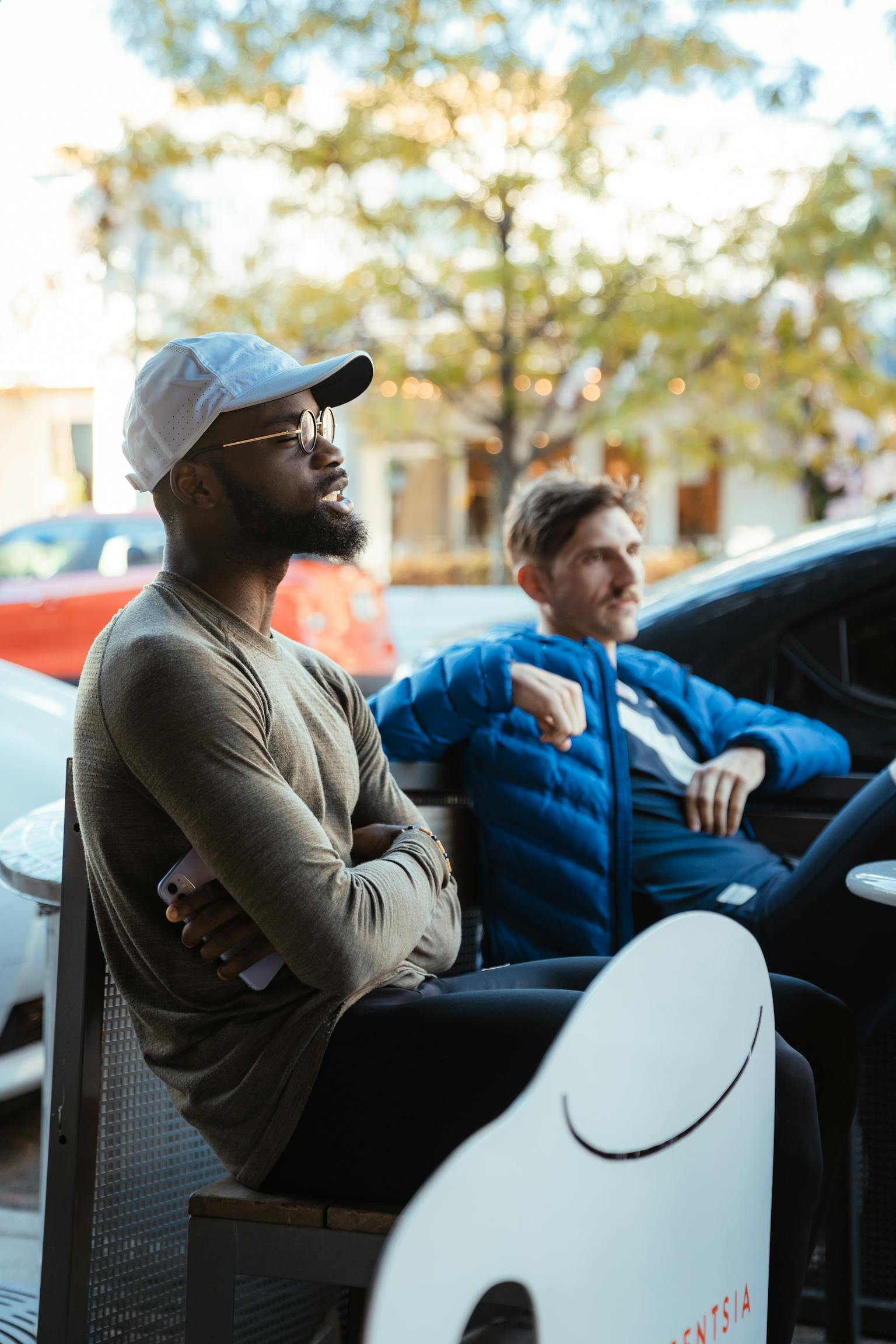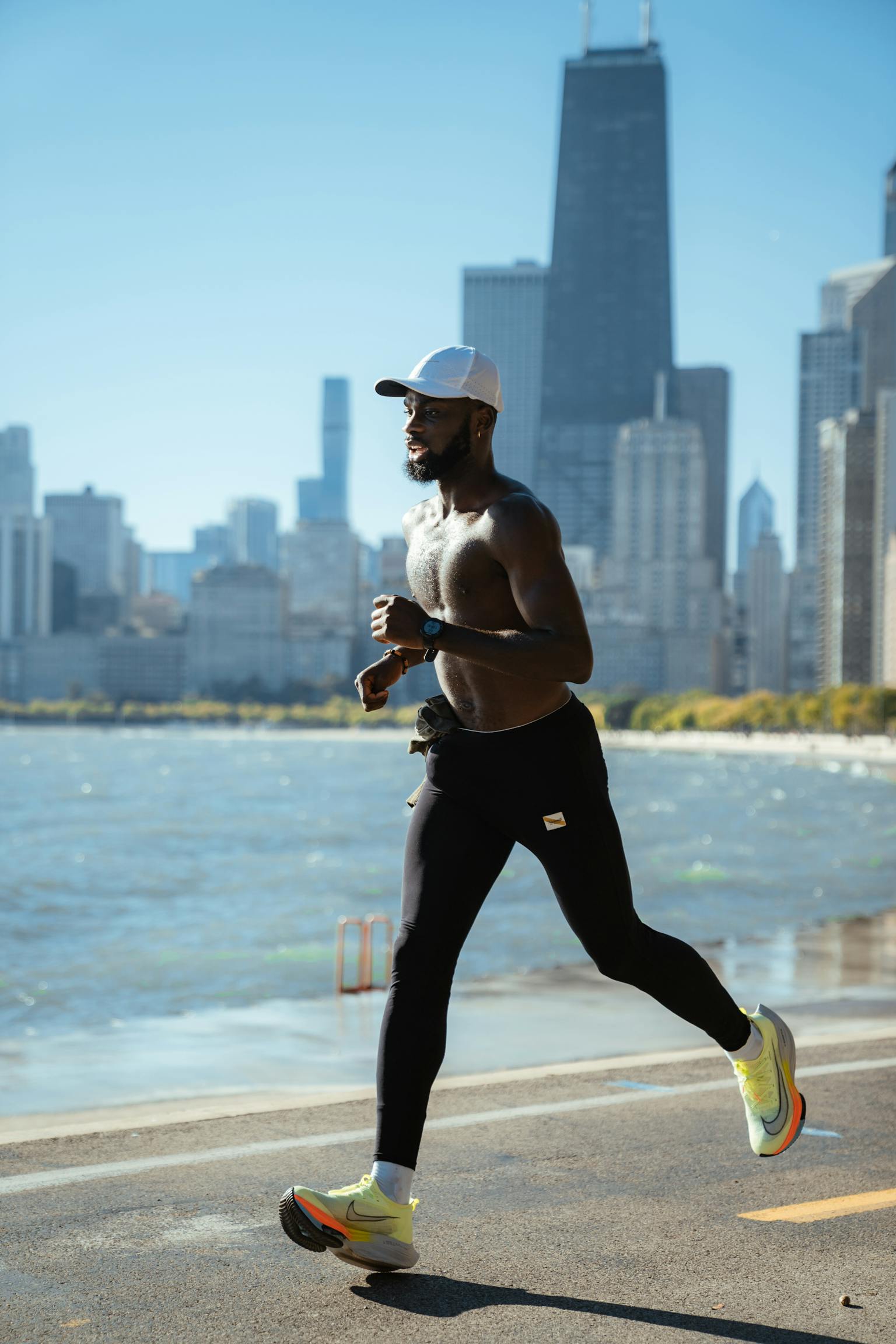
Miles of Melodies
Words by Hannah Borenstein
Photos by Christian Rasmussen
Harmony is a process of blending. An amalgamation of elements joining together to produce a new sensorial mode. Harmonies often present surprising possibilities of hearing, listening and being, which most people cannot readily sense.
The English word ‘harmony’ comes from the Greek harmonia and has different derivatives musically and culturally around the world. In Yoruba, a language spoken in West African countries including Togo, Benin, and Chicago-based runner, Daniel Ayomide Kumapayi’s native Nigeria, ‘harmony’ translates to ‘Àkójọpọ̀.’

Daniel, 24, who will toe the line in the Chicago Marathon on Sunday, October 9, is guided by Àkójọpọ̀. It’s not only the name of the non-profit he founded in Nigeria, centered around providing opportunities to Nigerian musicians, it’s something he’s continuously sought out in what can be a profoundly inharmonious world.
Born in Lagos, Daniel has lived most of his life in the U.S. In high school, he was a sprinter on the track and field team and specialized musically in the double bass. At the University of Michigan he studied Music Education, and continued to participate in track and field on the club team, but for a long time he never considered running longer distances.
“Sprinters tend to be Black and distance runners tend to be white,” Daniel says. “I think one cause of this is due to the racial wealth gap. I could imagine that if your family lives below the average family household income, the idea of running 20 miles seems irrelevant when faced with more important things in your lives. This is alongside not seeing other runners that look like you and potentially living in a neighborhood that isn't safe to run freely.”
Daniel’s observations are further backed up by historical, sociological, and infrastructural data.
The origins of distance running clubs, like the New York Athletic Club (NYAC) for instance, prohibited Black members (as well as Jews and Puerto Ricans) from joining until the 1960s. Even as running booms popularize the sport recreationally, the messaging and media made it out to be a white domain. For instance, as Dr. Tiffany Chenault elucidated, a survey of representation on Runner’s World covers from 1987–2017 showed that 93% of featured runners were white. While many run clubs advertise themselves “open to all,” nearly all white members in their photos and media make that sentiment unsuccessful.
Avid runners have touted the accessibility and ease of running as a harmonious blend of mind and body. But, as Ahmaud Arberry’s tragic murder made clear to many white runners in 2020, running while Black can be more unsafe – or even deadly. For many non-white runners, a lot more social, cultural, and practical elements must be blended in to cultivate a feeling of Àkójọpọ̀. And in Chicago, one of the most segregated cities in the U.S., finding running communities intent on making running accessible and safe for Black runners is a crucial part of this process.
In December 2020 Daniel moved to Chicago, where he worked as a music teacher for Chicago Public Schools. Chicago has always been a difficult place to run in the winter, and with the pandemic in full swing, being new to a partially shut down city was mentally and physically taxing. Daniel remembers, “a teacher at the school told me about GumboFit,” a community organization that prioritizes the needs and preferences of Black and Brown fitness enthusiasts in Chicago. “So I went to my first Track Tuesday and I just kept showing up.” GumboFit is one of many running and fitness groups in Chicago that is trying to broaden representation and opportunities for diverse runners in the city, especially on the Southside. From GumboFit, Daniel met other distance runners with whom he could find comfort in a deeply uncertain time.
Daniel also joined Men Run Deez Streets, and several other groups on the Southside of Chicago that responded to the need to carve out safe and welcoming spaces. “They’re really cool because it’s just a bunch of other Black people – Black men, Black women – running.”

Since then, groups have grown, as have storefronts. In 2020 Ian Gonzalez opened Last Lap Cornerstore – a Black/Latino owned running shop where runners from the Southside can buy products and meet up for group runs. It often serves as the meeting place for 7 on Sundays which started in 2018 as a run group where non-white representation is not only prioritized in terms of representation, but geography. So they can complete more runs in neighborhoods where this diverse running population lives and where their communities gather. It's also just more convenient for them - not having to commute to a predominantly white space to group run, prioritizes their needs.
For Daniel, running, at first, was just about fitness and movement. Now, as he’s deeper into the sport, he wonders, “I’m not sure if running has gotten more popular, or now my eyes are just focused on it more.”
Either way, the discipline from training as a musician has helped him progress quickly. “I don’t think musicians think of themselves as athletes, but I think in a way they are,” Daniel reflects. “If someone goes into a practice room they have to be very intentional. Like if I am really practicing a piece I have to create ways to measure if I have improved. Or I will have to design a warm-up intentionally. If you’re doing a more intentional practice in the key of G Major, you should warm up in the key that you’re performing in.”
Similarly, he’s found improvement as a runner by being intentional about his runs. “If you’re a beginner, just going outside and running every day is a good start. But now for the marathon I’m not going to be doing 100m sprints. I’ll do mile repeats or tempo runs to get better, specifically at the marathon.”
Specialized training is new for him, but it’s progressed quickly. After a few 5Ks Daniel ran some half marathons in Chicago and the Ann Arbor Marathon last year. It didn’t go as well as he hoped, but since then he’s learned much more about nutrition, training periodization, and so forth. His aim in Chicago is to run under 3 hours and qualify for Boston. Things don’t stop there.

Now Daniel is working as a Production Assistant for the Chicago Philharmonic, working towards a Masters in Public Administration in UIC, and directing Àkójọpọ̀, while training. Sometimes he trains with GumboFit, other times he jumps in long runs with 7 on Sundays or Heartbreak. Often he runs by himself. Interestingly, he doesn’t run by music. He doesn’t like to bring his phone with him because he doesn’t want to feel weighed down.
But this is how Daniel has found harmony since coming to Chicago, figuring out his own unique blend of community and inspiration through different pockets of people and places of comfort.
Running a sub-3 marathon and Qualifying for Boston is only one item on a long list of sporting and personal goals. Daniel has ambitions to run all the majors and complete Iron Man triathlons. He wants to grow Àkójọpọ̀ to become a self-sustaining platforms for Nigerian musicians to cultivate their own sense of harmony – something he knows, even when it’s difficult, is attainable.